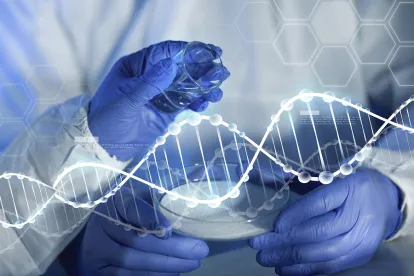A bill introduced this month by Sen. Thom Tillis, (R-NC), the Patent Eligibility Restoration Act of 2022, if enacted, would overrule the Supreme Court’s decision in Ass’n for Molecular Pathology v. Myriad Genetics, Inc., 133 S.Ct. 2107 (2013). In Myriad, the Supreme Court decided that a human gene is a product of nature that is “not patent eligible merely because it has been isolated”, with the justices invalidating Myriad Genetics’ patents on an isolated gene associated with a higher risk of breast cancer. In its wake, Myriad had a domino effect on patent subject matter eligibility that has continued in the years since and culminated in June of this year when the Supreme Court refused certiorari in the closely observed case American Axle & Manufacturing, Inc., v. Neapco Holdings LLC, an appeal to a Federal circuit decision that a drive shaft is not patent eligible because the operation of the drive shaft fundamentally relies on Hooke’s law.
In Myriad, the United States Supreme Court spoke to patent subject matter eligibility under section 101 of the America Invents Acts, in which discoveries, being distinguished from inventions, were found to not be patent eligible despite both the U.S. Constitution and the Patent Act identifying them as such. For example, 35 USC §101 requires “[w]hoever invents or discovers any new and useful process, machine, manufacture, or composition of matter…may obtain a patent therefore…” However, in Myriad, the Supreme Court held that “a naturally occurring DNA segment is a product of nature and not patent eligible merely because it has been isolated” and that “[g]roundbreaking, innovative, or even brilliant discovery does not by itself satisfy the 101 inquiry.”
The text of the bill retains much of the wording of Section 101 of the Patent Act, starting with “any useful process, machine, manufacture, or composition of matter” is eligible for patents, but identifies specific subject matter, as opposed to broad categories, that would not be patent eligible if claimed “as such.” For example, mathematical formulas, processes performed solely in the human mind, processes that occur in nature independent of human activity, and unmodified natural materials would not be eligible for patents under the bill. Thus, when a claim only includes the excluded subject matter it would not be eligible, but when combined with eligible subject matter, the claim would become eligible. Under current law, the Supreme Court has focused on if a claim is “directed to” ineligible subject matter when determining eligibility, regardless of any eligible subject matter that may be in the claim.
Thus, under the bill, any discovered human gene would still not be patent eligible if unmodified. However, the bill states that genes or natural material that are “purified, enriched, or otherwise altered by human activity, or otherwise employed in a useful invention or discovery,” would not be considered unmodified, and would be eligible for patents. This would directly overrule Myriad and expand the subject matter that is eligible for patent protection, and could put in doubt the many cases since Myriad’s 2013 decision that were directly based on its ruling.



 />i
/>i

